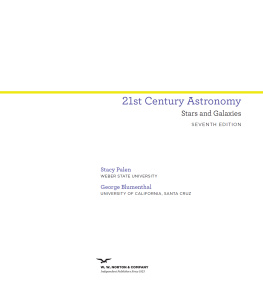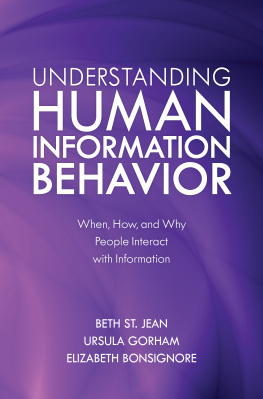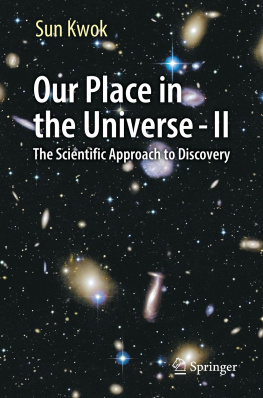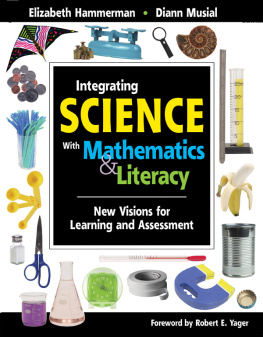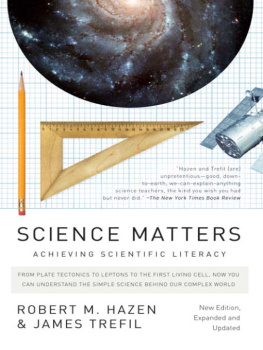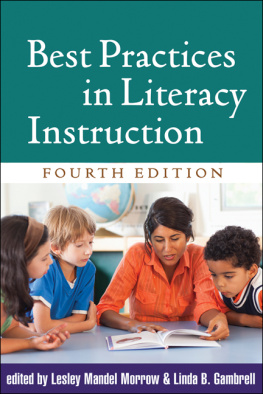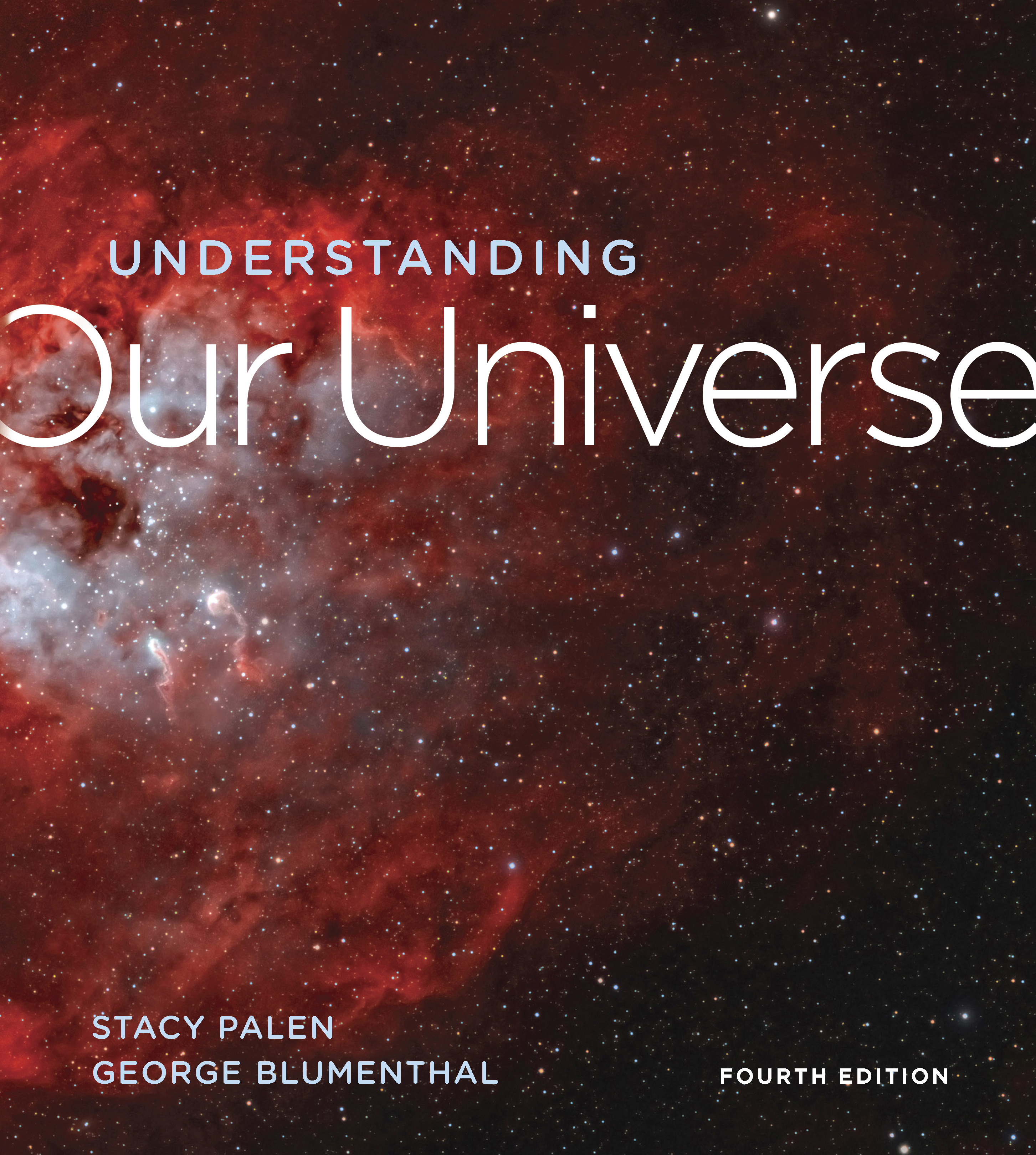PREFACE

Dear Student,
You may wonder why it is a good idea to take a general-education science course. Scientists, including astronomers, have a specific approach to understanding new information. Astronomers understand when they can make correct predictions about what will happen next. Astronomers know when an idea has been tested dozens, or even hundreds, of times and has stood the test of time.
There are two fundamental goals to keep in mind as you take this course. The first is to understand some basic physical concepts and become familiar with the night sky. The second is to learn to think like a scientist and learn to use the scientific method, or process of science, to answer questions in this course and make decisions about science and technology in your life. We have written the Fourth Edition of Understanding Our Universe with these two goals in mind.
Throughout this book, we emphasize the content of astronomy (the masses of the planets, the compositions of stellar atmospheres) as well as how we know what we know. The scientific method is a valuable tool that you can carry with you, and use, for the rest of your life.
The most effective way to learn something is to do it. Whether you are playing an instrument or a sport or becoming a good cook, reading how can only take you so far. The same is true of learning astronomy. The following tools in each chapter help you do as you learn:
- Active Learning Figures open each chapter and ask you to do science by setting up an experiment, making either a prediction or an observation, and recording the results. We hope you find that the answer isnt the most important part of the activity. Rather, we want the experience of thinking about a physical phenomenon and predicting what will happen next to become a natural way for you to apply your knowledge and understand new concepts.
- To promote active reading, we place Check Your Understanding questions at the end of each section of a chapter. These questions act as speed bumps so that you will pause and check your comprehension of the material prior to moving on to the next section. These, and the Questions and Problems sections at the end of each chapter, are a great way to check whether you have a basic understanding of the material.
- Within each chapter, the What an Astronomer Sees feature helps you understand how astronomers interpret astronomical images, obtaining enormous amounts of information from a single picture. This feature is accompanied by an end-of-chapter question to help you find and interpret visual clues in the universe yourself. Similarly, we have identified all of the figure-based questions at the end of the chapter with an icon; these will also help develop your ability to interpret images and graphs.
- What If questions throughout the chapter prompt you to apply what you have learned to situations both real and imagined. Many of these are based on questions that students have asked when they wondered, What if the universe were different than it is?
- Reading Astronomy News sections toward the end of each chapter include a news article or press release with questions to help you make sense of how the science is presented. For citizens of the world, recognizing what is credible and questioning what is not are important skills. You make judgments about science, distinguishing between good science and pseudoscience, in order to make decisions in the grocery store, pharmacy, car dealership, and voting booth. You base these decisions on the presentation of information you receive through the media, which is very different from the presentation of information in class. The goal of Reading Astronomy News is to help you build your scientific literacy and your ability to challenge what you hear elsewhere.
- At the very end of each chapter, an Exploration activity shows you how to use the concepts and skills you learned in an interactive way. About half of the books Explorations ask you to use animations and simulations found on the Student Site, while the others are hands-on, paper-and-pencil activities that use everyday objects such as ice cubes or balloons.
We believe that the learn-by-doing approach not only helps you better understand the material, but also makes the material more interesting and, perhaps, fun.
As you learn any new subject, one of the stumbling blocks is often the language of the subject itself. This can be jargonthe specialized words unique to that subjectfor example, supernova or Cepheid variable. But it can also be ordinary words that are used in a special way. As an example, the common word inflation usually applies to balloons or tires in everyday life, but economists use it very differently, and astronomers use it differently still. Throughout the book, we have included Vocabulary Alerts that point out the astronomical uses of common words to help you recognize how those terms are used by astronomers.
 Astronomy in Action: Wiens Law
Astronomy in Action: Wiens Law
 AstroTour: Solar System Formation
AstroTour: Solar System Formation
In learning science, there is another potential language issue. The language of science is mathematics, and it can be as challenging to learn as any other language. The choice to use mathematics as the language of science is not arbitrary; nature speaks math. To learn about nature, you will also need to speak its language. We dont want the language of math to obscure the concepts, so we have placed this books mathematics in Working It Out boxes to make it clear when we are beginning and ending a mathematical argument, so that you can spend time with the concepts in the chapter text and then revisit the mathematics to study the formal language of the argument. Read through a Working It Out box once, then cover the worked example with a piece of paper, and work through the example until you can do it on your own. When you can do this, you will have learned a bit of the language of science. We want you to be comfortable reading, hearing, and speaking the language of science, and we provide you with tools to make it easier.
 Interactive Simulation: Radial Velocity
Interactive Simulation: Radial Velocity
In addition to learning the language of astronomy, visualizing a process or phenomenon will help you reach a deeper understanding. In addition to the illustrations in the book, many physical concepts are further explained in a series of short Astronomy in Action videos, AstroTour animations, and new Interactive Simulations available in the ebook and on the Student Site. The videos feature one of the authors (and several students) demonstrating physical concepts at work. Each animation is a brief tutorial on a concept or process in the chapter. The simulations allow you to explore topics such as Moon phases, Keplers laws, and the Hertzsprung-Russell diagram. Your instructor might assign the videos and animations to you, or you might choose to watch them on your own to create a better picture of each concept in your mind.
Finally, every new copy of the book or ebook includes access to


